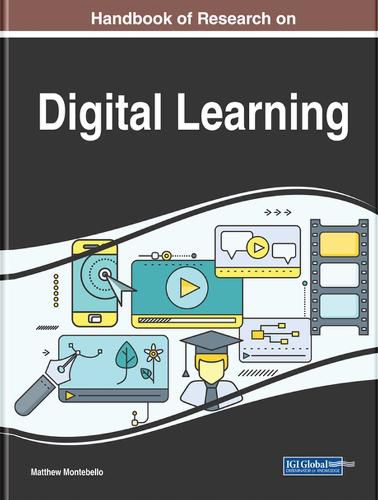Readings Newsletter
Become a Readings Member to make your shopping experience even easier.
Sign in or sign up for free!
You’re not far away from qualifying for FREE standard shipping within Australia
You’ve qualified for FREE standard shipping within Australia
The cart is loading…






This title is printed to order. This book may have been self-published. If so, we cannot guarantee the quality of the content. In the main most books will have gone through the editing process however some may not. We therefore suggest that you be aware of this before ordering this book. If in doubt check either the author or publisher’s details as we are unable to accept any returns unless they are faulty. Please contact us if you have any questions.
Education has gone through numerous radical changes as the digital era has transformed the way we as humans communicate, inform ourselves, purchase goods, and perform other mundane chores at home and at work. New and emerging pedagogies have enabled rapid advancements, perhaps too rapidly. It’s a challenge for instructors and researchers alike to remain up to date with educational developments and unlock the full potential that technology could have on this significant profession.
The Handbook of Research on Digital Learning is an essential reference source that explores the different challenges and opportunities that the new and transformative pedagogies have enabled. The challenges will be portrayed through a number of case studies where learners have struggled, managed, and adapted digital technologies in their effort to progress educational goals. Opportunities are revealed and displayed in the form of new methodologies, institutions scenarios, and ongoing research that seeks to optimize the use of such a medium to assist the digital learner in the future of networked education. Featuring research on topics such as mobile learning, self-directed learning, and cultural considerations, this book is ideally designed for teachers, principals, higher education faculty, deans, curriculum developers, instructional designers, educational software developers, IT specialists, students, researchers, and academicians.
$9.00 standard shipping within Australia
FREE standard shipping within Australia for orders over $100.00
Express & International shipping calculated at checkout
This title is printed to order. This book may have been self-published. If so, we cannot guarantee the quality of the content. In the main most books will have gone through the editing process however some may not. We therefore suggest that you be aware of this before ordering this book. If in doubt check either the author or publisher’s details as we are unable to accept any returns unless they are faulty. Please contact us if you have any questions.
Education has gone through numerous radical changes as the digital era has transformed the way we as humans communicate, inform ourselves, purchase goods, and perform other mundane chores at home and at work. New and emerging pedagogies have enabled rapid advancements, perhaps too rapidly. It’s a challenge for instructors and researchers alike to remain up to date with educational developments and unlock the full potential that technology could have on this significant profession.
The Handbook of Research on Digital Learning is an essential reference source that explores the different challenges and opportunities that the new and transformative pedagogies have enabled. The challenges will be portrayed through a number of case studies where learners have struggled, managed, and adapted digital technologies in their effort to progress educational goals. Opportunities are revealed and displayed in the form of new methodologies, institutions scenarios, and ongoing research that seeks to optimize the use of such a medium to assist the digital learner in the future of networked education. Featuring research on topics such as mobile learning, self-directed learning, and cultural considerations, this book is ideally designed for teachers, principals, higher education faculty, deans, curriculum developers, instructional designers, educational software developers, IT specialists, students, researchers, and academicians.